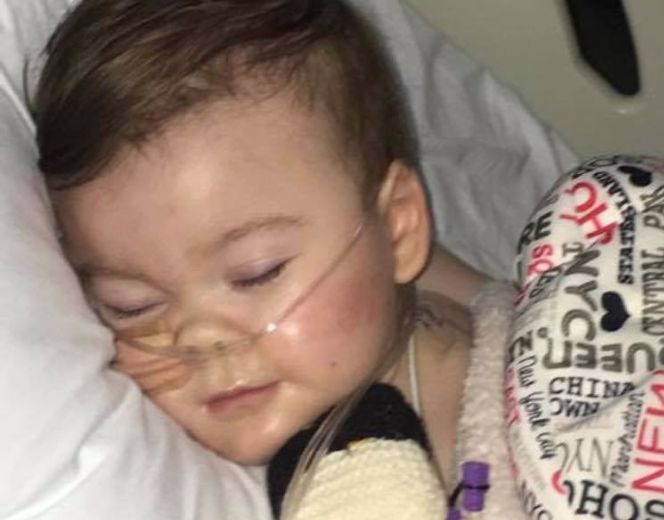Why are we letting the values of human dignity and parent’s rights slip away?
Little Alfie Evans died after all, despite the tender intervention of Pope Francis and the prayers of millions across the world.
Although he suffered from a neurologic disorder that was reportedly incurable, it is possible that his death could have been put off indefinitely with a respirator and a feeding tube.
His mother and father wanted more time with him, more certainty that all avenues had been explored and all possibilities for improvement had been exhausted.
But the hospital decided for them, and Alfie was allowed to die.
Perhaps in a few more weeks, the young couple would have become comfortable with the knowledge that their baby had come to them only for a short visit. They would have come to understand that it was time to let him return to the Father, and bless them from heaven.
Or perhaps they would have chosen to take him home and tend to him lovingly, helping him breathe and eat. He would be a blessing to them for years on earth.
As a Christian mother, I sympathize with both of these choices, knowing that they can both be expressions of selfless parental affection.
As a Catholic doctor, I also know that both options are congruent with our faith’s profound teachings around end-of-life care.
Choosing to accept death for yourself or your loved one when the body can no longer function unassisted is an honorable and licit choice. It is a choice that comes easiest when supernatural hope is abundant and we are filled with confidence in the Savior’s promises of a joyful afterlife.
Taking the other path, toward months or years of gentle attentiveness and the almost routine assistance of a ventilator and a feeding tube, is also honorable. This decision too can be the fruit of hope — hope in God’s perfect willingness and ability to provide for all our needs, especially the grace to persevere heroically.
In the course of my work in the hospital, I’ve seen family members take each of these paths and have been impressed with their bravery. I’ve also seen patients choose one or the other for themselves with great courage.
I’ve witnessed difficult situations met with abundant peace, especially when a trusted priest is present, smoothing the way for brothers and sisters, or mothers and fathers, to come together to share in the challenging decision.
It takes time, and patience, and lots of respect for the distress and dismay of good people who were not prepared to face, this month or this year, the hardest decision of their lives.
It was this time, patience and respect that was missing in the case of Alfie Evans. His mother and father had every right to walk that thorny path at their own pace, and to choose which way to walk it. It was their hearts that were broken, and their child that had been inexplicably stricken.
The court and the hospital took their authority away in a move of breathtaking injustice.
When Pope Francis offered Baby Jesus Hospital (Bambino Gesu) in Rome as a safe harbor for the little family, a quiet place where they could be respectfully accompanied through the painful process, the court refused to let Alfie go. The court spoke, strangely, about possible harm to the child during the transfer.
Strange to worry about harm coming to a child when you have decided already that his life is not worth living and must be quickly ended.
This is not the end of the saga of Alfie Evans.
The people of Great Britain have woken up to find that somehow, somewhere, the locus of control over their own children has passed away from them and has been given to a cold, impersonal cadre of experts and judges. And the default position of these strangers is that some lives are not worth living.
There is a real desire, it seems, for the British to take back control and put mothers and fathers back where they belong: in the role of decision makers over the medical treatment of the children they love more dearly than they love themselves.
I think there may also be a readiness to re-examine their culture’s drift away from a sound understanding of human dignity, especially the dignity of the disabled and vulnerable.
Watching and praying from across the ocean, we hope they succeed — on both counts.
Dr. Grazie Pozo Christie grew up in Guadalajara, Mexico, coming to the U.S. at the age of 11. She has written for USA TODAY, National Review, The Washington Post and The New York Times, and has appeared on CNN, Telemundo, Fox News and EWTN. She practices radiology in the Miami area, where she lives with her husband and five children.
Interested in more? Subscribe to Angelus News to get daily articles sent to your inbox.

